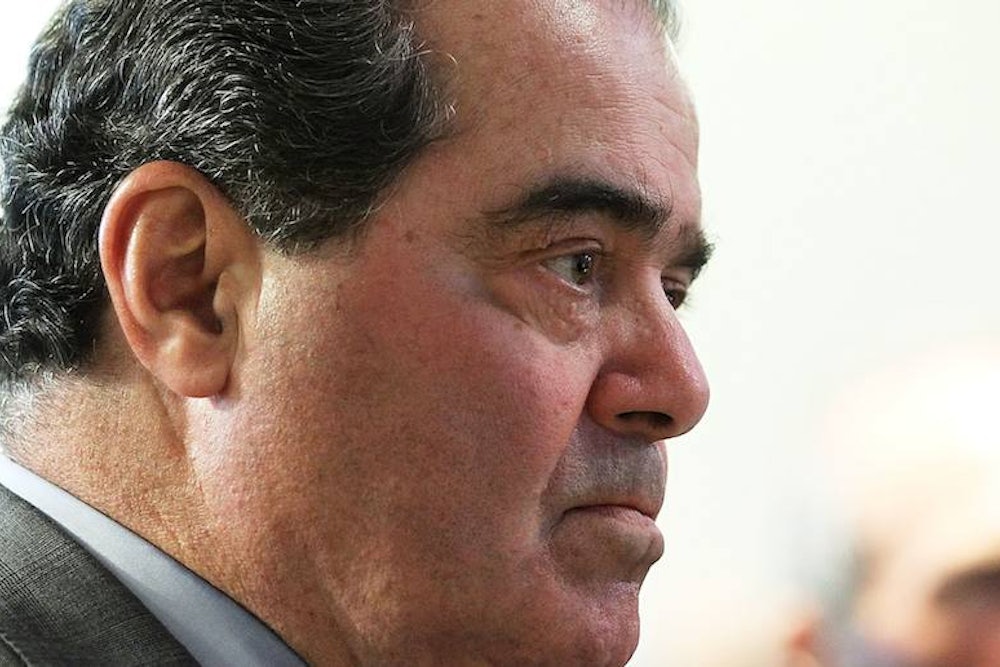Antonin Scalia believes in the Devil, suspects some of his friends are homosexual, and thinks that ladies who use the "F-word" are sadly symptomatic of a coarsened culture. Those are just a couple of the more entertaining details from a brilliantly conducted interview with Scalia by Jennifer Senior of New York magazine. In addition to talking about his writing process (clerks structure the first draft) and whether history will be cruel or kind to his legacy, Scalia also holds forth on other Supreme Court justices quite candidly. Below, a rough breakdown of how Scalia appears to regard his colleagues.
THE FAVORED: Surprisingly (or maybe not, given his long-publicized closeness with Ruth Bader Ginsburg), Scalia seems to hold at least some of his liberal colleagues in higher personal regard than his fellow conservatives. As he tells Senior, "If you have low expectations, you’re not disappointed. When it’s somebody who you think is basically on your side on these ideological controversies, and then that person goes over to the dark side, it does make you feel bad." Justice Elena Kagan earns his praise, for instance, for bringing originalists onto the staff of Harvard Law, where they had previously been unrepresented, and disrespected in haute academic circles. He also calls John Paul Stevens his favorite sparring partner, an equal with opposite views but a similar appetite for endless, sharpening debate.
THE UNFAVORED: Senior brings up Justice Kennedy, Scalia's fellow Reagan appointee, by calling him the "Thurgood Marshall of gay rights." Scalia nods, then makes it clear that he is disappointed in his colleague's jurisprudence. "Maybe the world is spinning toward a wider acceptance of homosexual rights, and here’s Scalia, standing athwart it. At least standing athwart it as a constitutional entitlement."
However, he saves his clearest contempt for William Rehnquist. Scalia says that the Rehnquist-authored opinion in Morrison v. Olson, which eroded presidential power, was "wrenching," and that the conservative former justice wrote the opinion "in a manner that was more extreme than I think Bill Brennan would have written it." He also docks (and mocks!) Rehnquist on syle points.
There are some justices who adopt a magisterial approach to a dissent. Rehnquist used to do it. [He turns his nose up theatrically, flutters his hand in dismissal.] Just, Don’t even respond to the dissent. This is the opinion of the Court, and the hell with you.
And hell, as he notes elsewhere in the interview, is not a concept Scalia takes lightly.
Noreen Malone is a staff writer for the New Republic.
